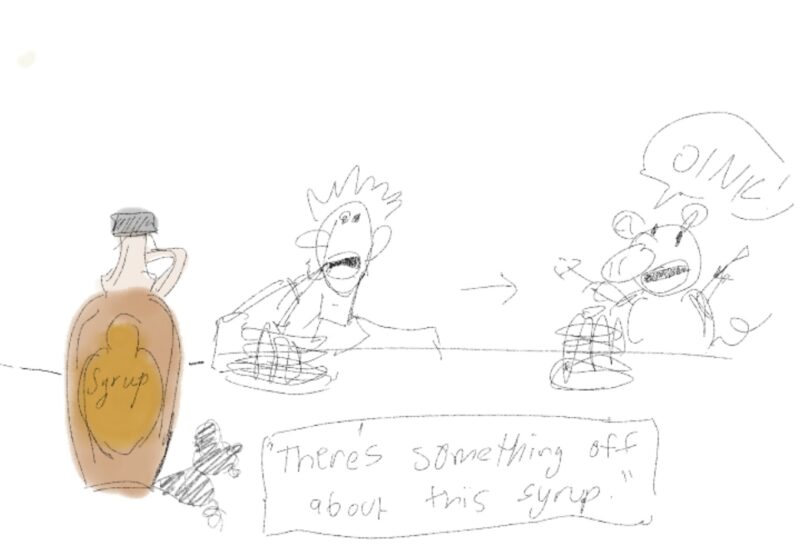This review contains spoilers.
Time is messy.
This theme, while not novel, still proves something of a revelation in “Harry Potter and the Cursed Child,” the two-part stage play serving as a sequel to the seven-novel “Harry Potter” series by J.K. Rowling. The play—written by Jack Thorne and based on an original story by Thorne, Rowling, and the production’s director, John Tiffany—finds its characters struggling with the past.
Harry Potter, now middle-aged, struggles with the sacrifices he’s made in the name of the “greater good”; Draco Malfoy must face the reputation his family’s association with the Death Eaters has bestowed upon him and his son, Scorpius; Harry’s youngest son, Albus, collapses under the weight of his father’s legacy.
As much as these characters might wish otherwise, there is no way to change their individual histories. Even the magical Hogwarts portraits—the series’ most obvious representation of the past— aren’t truly their subjects, but rather “memory and paint,” as a certain beloved character reminds Harry.
But what if the past can be changed?
Rowling, Thorne, and Tiffany bring back the series’ most ludicrous plot device, Time Turners, to explore this idea.
While the concept hasn’t really improved on a logical level since the third “Potter” novel—there’s a reason Rowling destroyed them all later in the series (#PlotHoles)—delving into the what-ifs of the series proves surprisingly interesting.
The play follows two generations of characters: our original protagonists—Harry, Ron, Hermione, Ginny, and Draco—and their children, specifically, Albus Potter and Scorpius Malfoy. After three years at Hogwarts, Albus, angry at his father for leaving him an impossible legacy to live up to, steals a newly-discovered Time Turner to travel back to the Triwizard Tournament to correct one of his father’s largest failings: the death of the “spare,” Cedric Diggory. However, this seemingly simple change has unforeseen consequences that might have deadly (or deathly!) implications.
At first, the alternate timelines that fall into play inevitably come across as fan fiction, but the second part expands to have deeper implications on the characters’ actions throughout the series. Some readers may find the whole concept of the play rather ironic (Is J.K. Rowling trying to cling to the past as much as some of her characters?), but the thematic examinations in the second part of the play render something expendable into a work that feels much more necessary to the canon.
And, perhaps the most cloying scene of the entire series—the final book’s ridiculous epilogue, in which Harry seems to fix his family’s biggest problem by simply explaining to Albus that it would be okay to be sorted into Slytherin—is almost immediately rectified, as the play opens with the same scene, only to go much further in establishing the doubt and resentment apparent between both characters.
Despite the impressive handling of some mature themes, though, the script is not perfect. Like all of Rowling’s work, it could have used a bit more editing; there are slapstick scenes that could, should, and might have been cut, especially an absolutely bizarre sequence featuring the Hogwarts Express Trolley Witch. And while characters old and new are allotted great moments of depth, Ron and Hermione draw the short end of the stick in these terms and spend most of the play arguing and making sexy faces at one another.
But these are minor quibbles of what becomes a beautiful rumination on the series as a whole, as the characters come to terms with their pasts and futures, while recognizing that, even without Voldemort, they still have plenty of problems. And the play’s denouement, a small, simple scene in which two characters work to reach an understanding, serves as a poignant, beautiful closer to the series.
Mischief managed.




